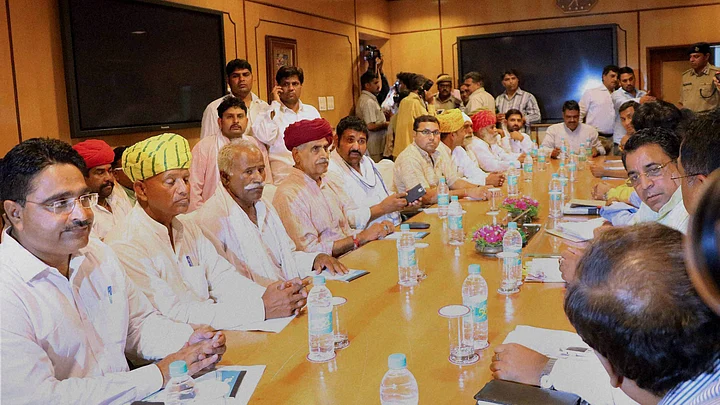The Rajasthan government on Friday, 22 December, announced one percent reservation for Gujjars and four other backward communities by creating a separate category – most backward classes.
“Along with the one per cent, they will continue getting quota benefits under the other backward classes (OBC) category," Rajasthan Minister for Social Justice and Welfare Arun Chaturvedi told The Times of India.
This move has taken the total reservation quota in the state to 50 percent, which is the limit set by the Supreme Court.
The move is seen as an aim to woo Gujjars ahead of the by-elections in Alwar and Ajmer and also next year’s Assembly elections.
Gujjars Unhappy With the Move
However, Gujjars, who had demanded five percent quota exclusively for the community, are not satisfied with the move and have rejected the offer.
They reiterated their want a sub-categorisation of the OBC quota. “Even the Centre has initiated an exercise to examine sub-categorisation of OBC reservation. What stops the Rajasthan government from doing the same?” Gujjar leader Kirori Singh Bainsla told The Hindu.
Along with Gujjars, four other nomadic communities – Banjara, Gadia-Lohar, Raika and Gadariya – have been included in the OBC quota in government jobs and educational institutions.
The Fallout of the OBC Bill
The state Assembly had on 26 October passed a Bill creating the “most backward” category within the OBCs for Gujjars and four other nomadic communities by increasing the OBC quota from 21 percent to 26 percent .
However, the Rajasthan High Court restrained the state government from implementing the provisions of the Bill, followed by the Supreme Court putting out a similar ruling.
(With inputs from The Hindu, Hindustan Times and Times of India)
(At The Quint, we question everything. Play an active role in shaping our journalism by becoming a member today.)
